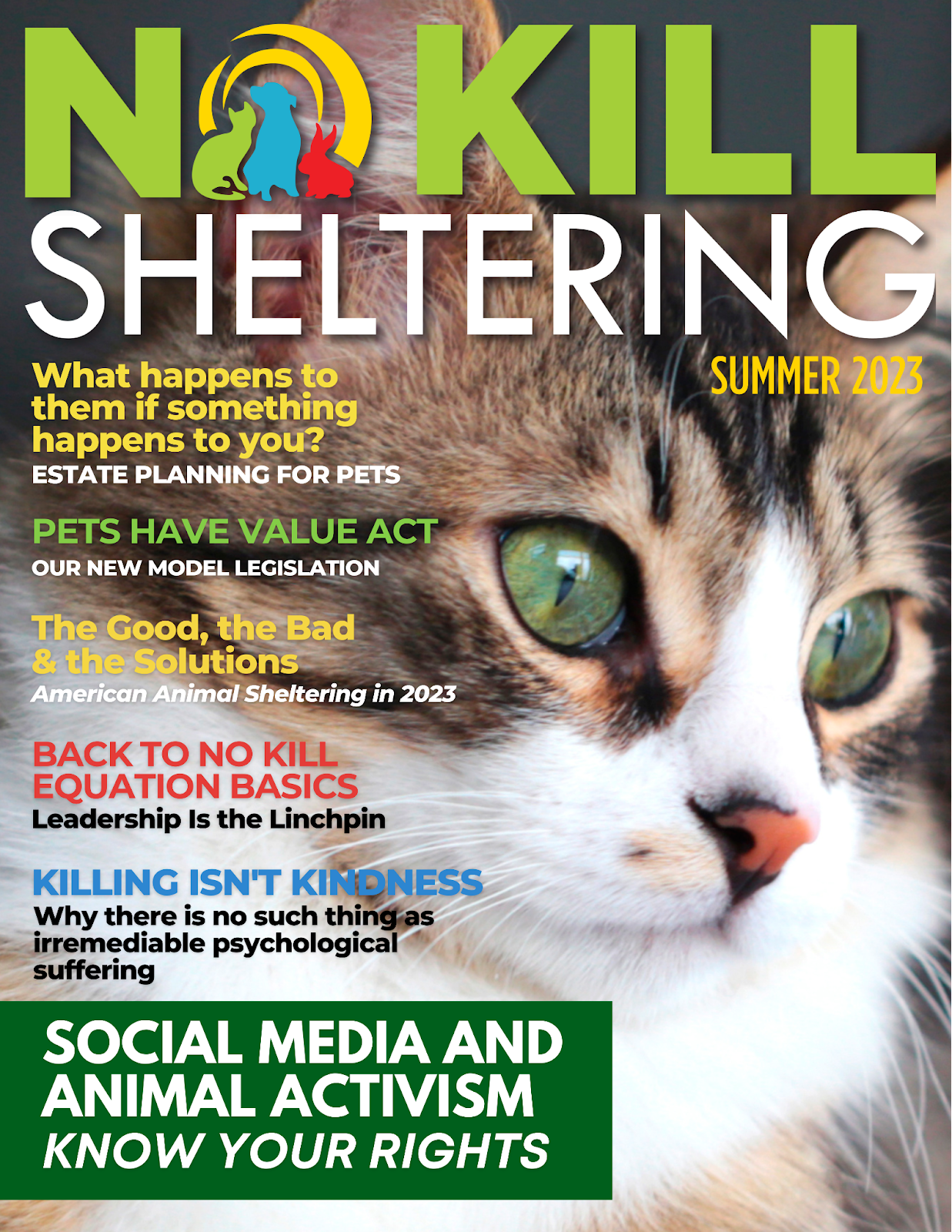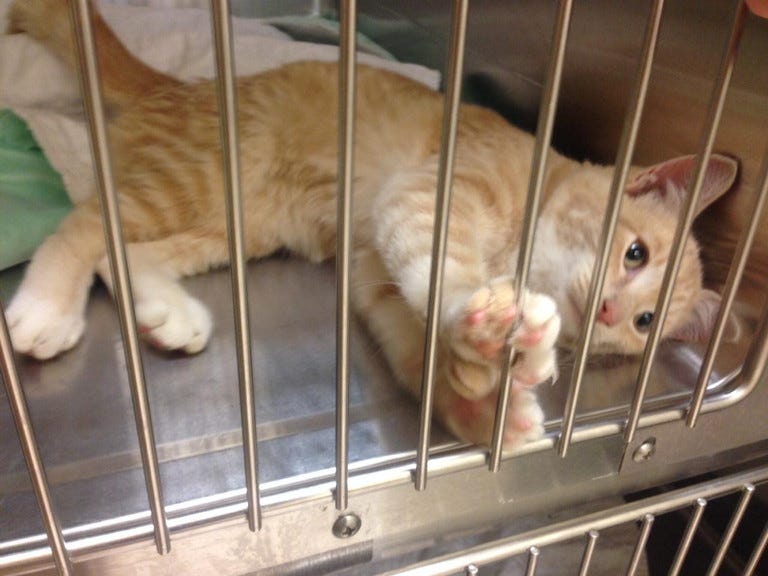Cultured chicken approved for U.S. sales
News and headlines for June 24 - June 30, 2023

These are some of the stories making headlines in animal protection:
Although intakes are down by double-digits compared to pre-pandemic levels, the number of dogs killed rose by 43% in the first quarter of 2023. Why?
Many shelters are not fully open to the public and have not re-embraced the No Kill Equation programs they scuttled during the pandemic: foster care, marketing and promotion, high-volume sterilization, offsite adoptions, and other robust adoption campaigns. It is why killing is up in communities like Los Angeles, CA, and prospects for No Kill success look grim in places like Austin, TX.
In Orange County, CA, for example, killing dogs for behavior, including puppies, has increased by 187%, despite an over 30% decline in intakes. The shelter is closed to adopters, except by appointment, “offering only a limited number of appointments for pet-seekers and for people looking for lost pets. It allows few walk-ins.”
Tragically, they have been given political cover to do this by Best Friends Animal Society and the ASPCA, which are encouraging shelters to adopt similar policies. By contrast, communities embracing the No Kill Equation still achieve 95-99% placement rates, proving that shelter killing is a choice.
A 28-year-old chimpanzee, who was caged her entire life, saw the open sky for the first time in her life…
Vanilla, the rescued chimp, spent her early years at a New York biomedical research laboratory where chimps were often housed in small cages, which were “suspended from the ground like bird cages.”
She and the others were sent to a sanctuary when the facility permanently closed. After jumping into the arms of another chimp, she looks to the sky and smiles.
Primates (and other animals) should not be experimented on. Unfortunately, doing so is legal, and efforts to give primates legal personhood to compel otherwise through the courts have failed. In a New York lawsuit against a research facility on behalf of two chimpanzees held in isolation, the court ruled that the chimps were not legal persons entitled to release.
There was, however, a stinging rebuke by the dissenting judges:
The reliance on a paradigm that determines entitlement to a court decision based on whether the party is considered a ‘person’ or relegated to the category of a ‘thing' amounts to a refusal to confront a manifest injustice. Whether a being has the right to seek freedom from confinement through the writ of habeas corpus should not be treated as a simple either/or proposition. The evolving nature of life makes clear that chimpanzees and humans exist on a continuum of living beings. Chimpanzees share at least 96% of their DNA with humans. They are autonomous, intelligent creatures. To solve this dilemma, we have to recognize its complexity and confront it.
The issue whether a nonhuman animal has a fundamental right to liberty… speaks to our relationship with all the life around us. Ultimately, we will not be able to ignore it. While it may be arguable that a chimpanzee is not a ‘person,’ there is no doubt that it is not merely a thing.
Sadly, but predictably, U.S. courts have not yet agreed. But someday, they will. And while the sky will be in no danger of falling when they do, it shouldn’t make a difference even if it did. In an 18th Century anti-slavery case, a British court issued one of the most famous and celebrated maxims in legal jurisprudence. It ruled that a court’s first and foremost duty was to ameliorate manifest injustice regardless of consequences: Fīat jūstitia ruat cælum.
“Let justice be done though the heavens fall.”
The Summer 2023 issue of No Kill Sheltering is now available for supporters of The No Kill Advocacy Center.
The current issue covers:
Estate planning for your pets;
Pets Have Value Act;
The state of animal sheltering in 2023 and what we should do about it;
Leadership;
The effort to legislate the killing of shy, scared, traumatized, and stressed animals in shelters; and,
Your rights as a volunteer, rescuer, and No Kill advocate.
Do you have what it takes to save lives?




